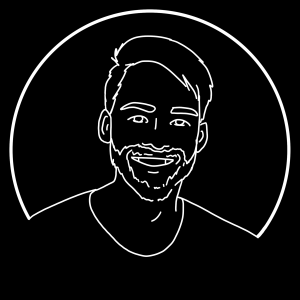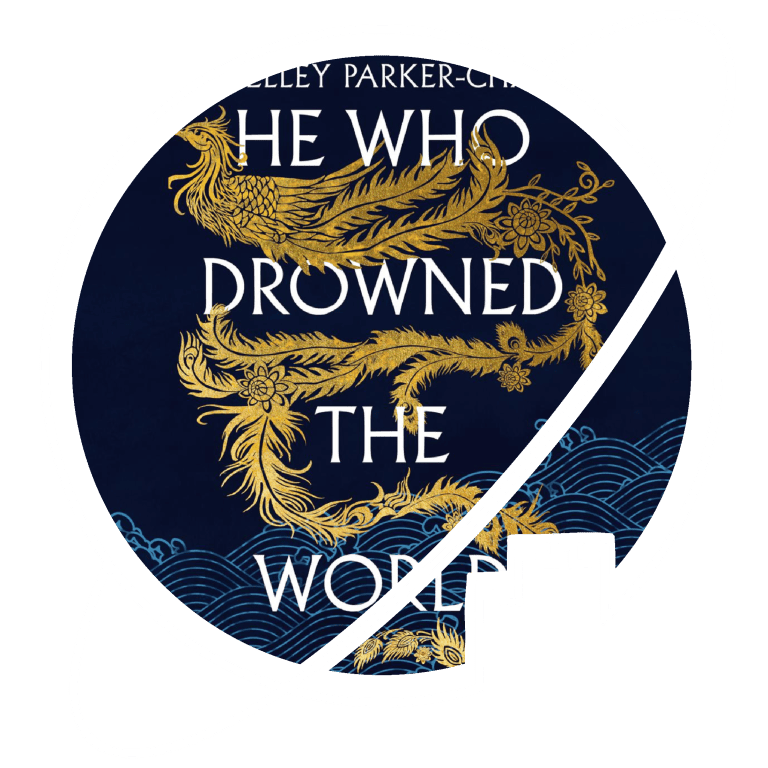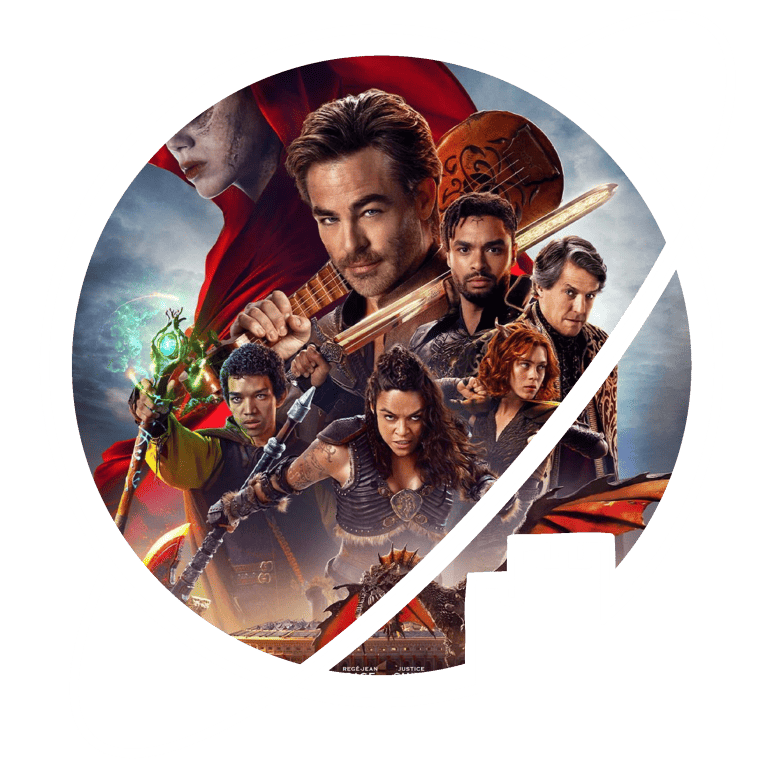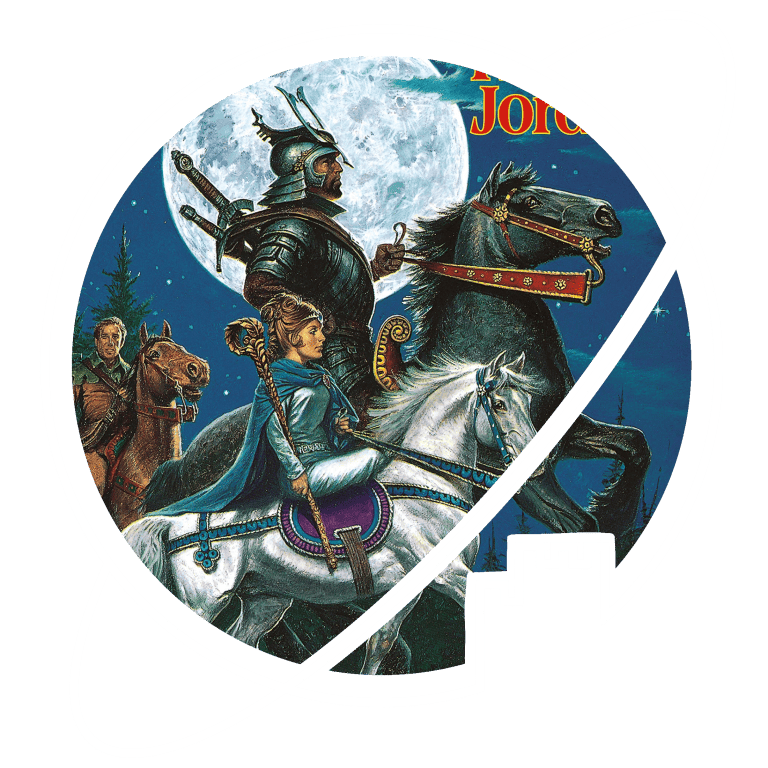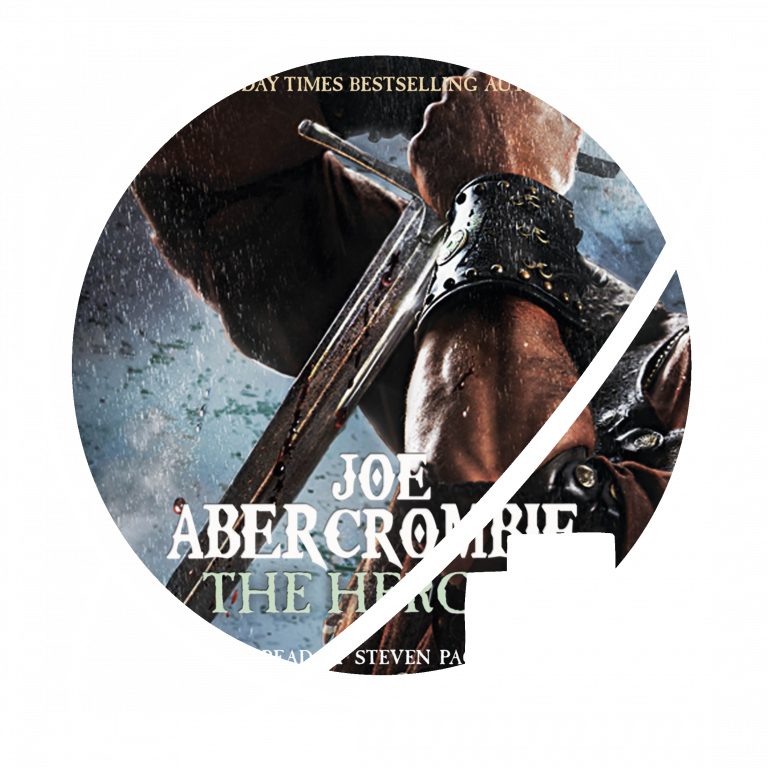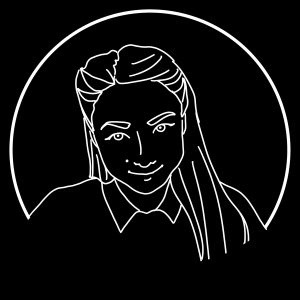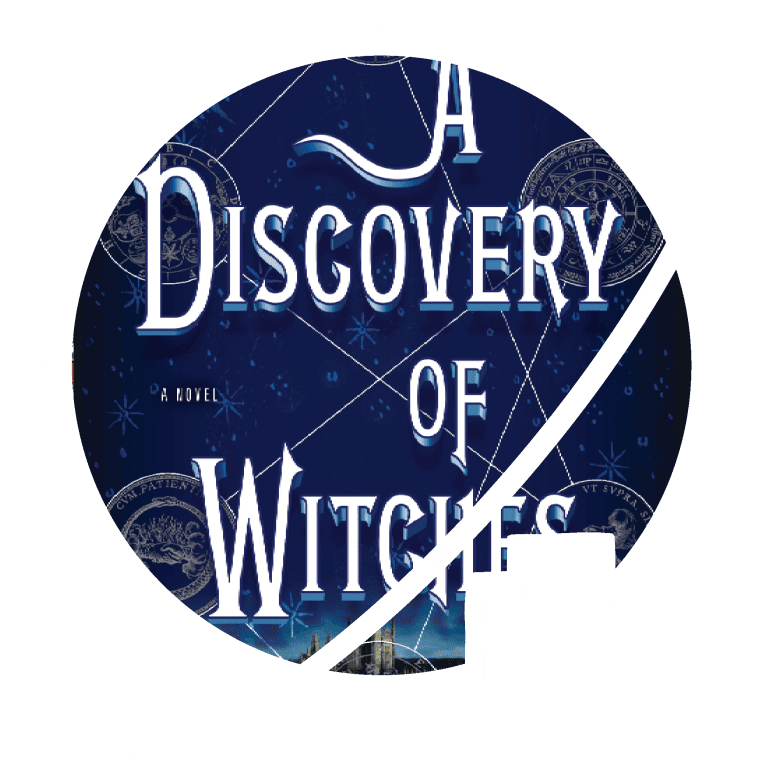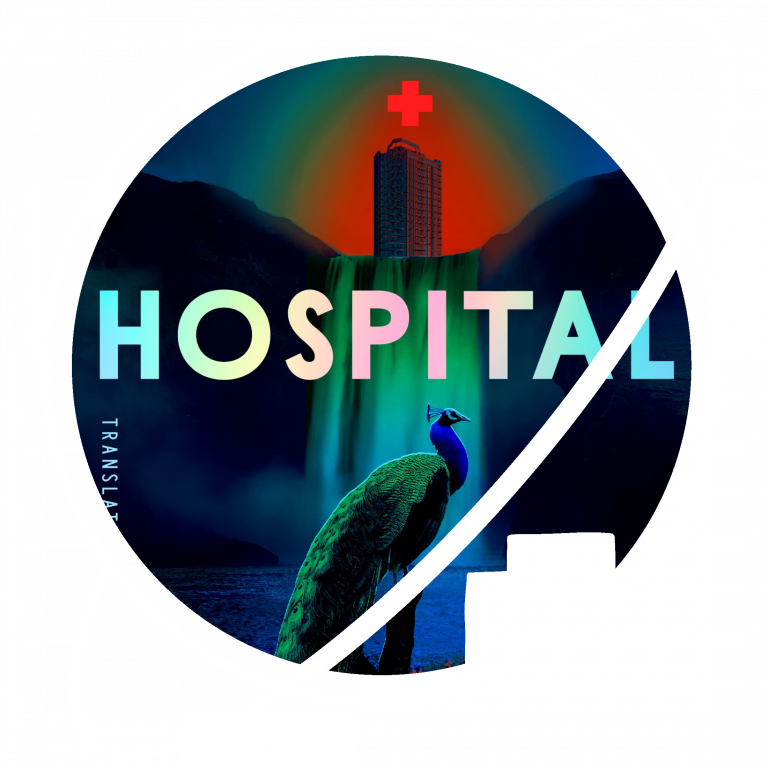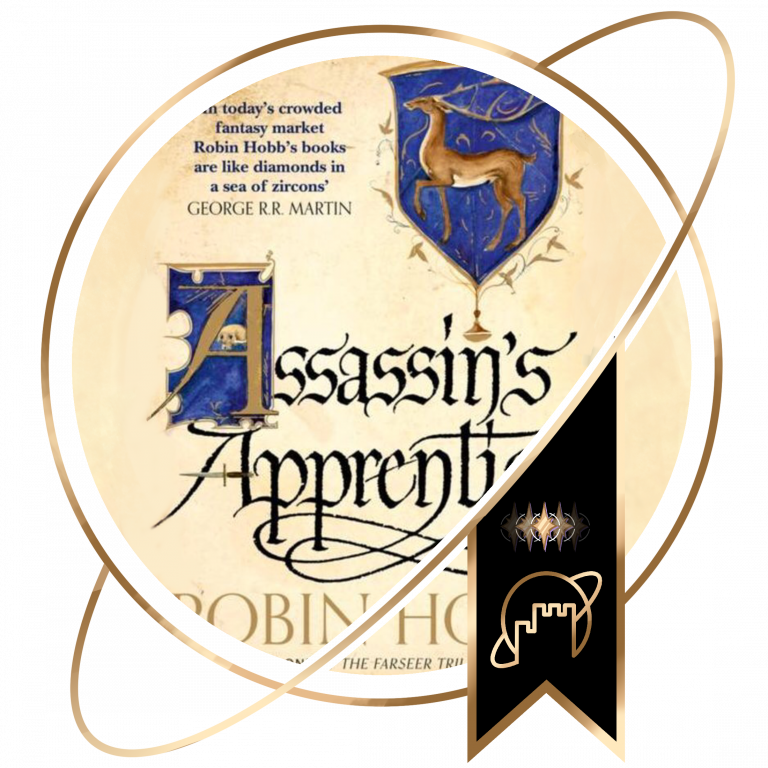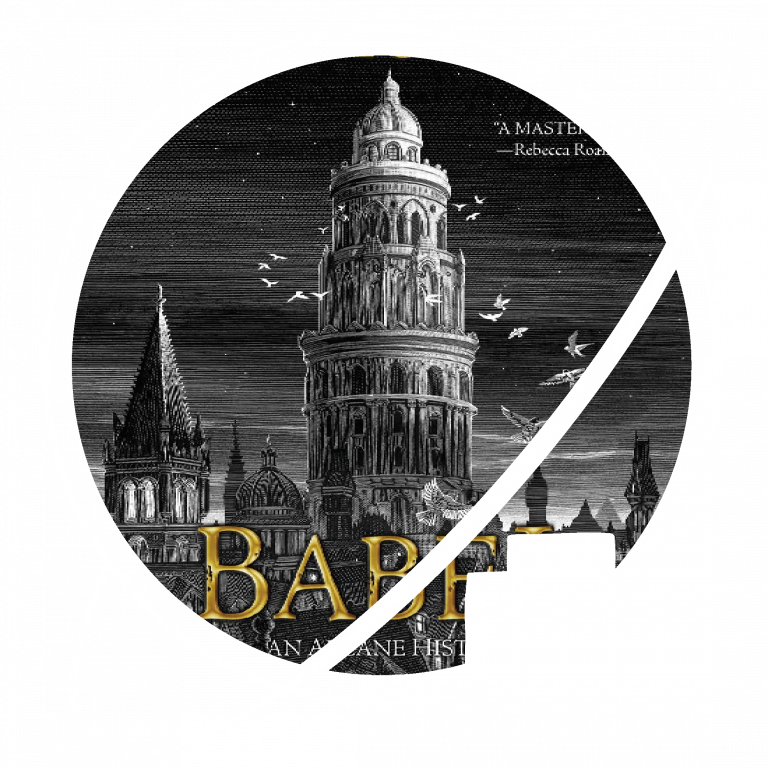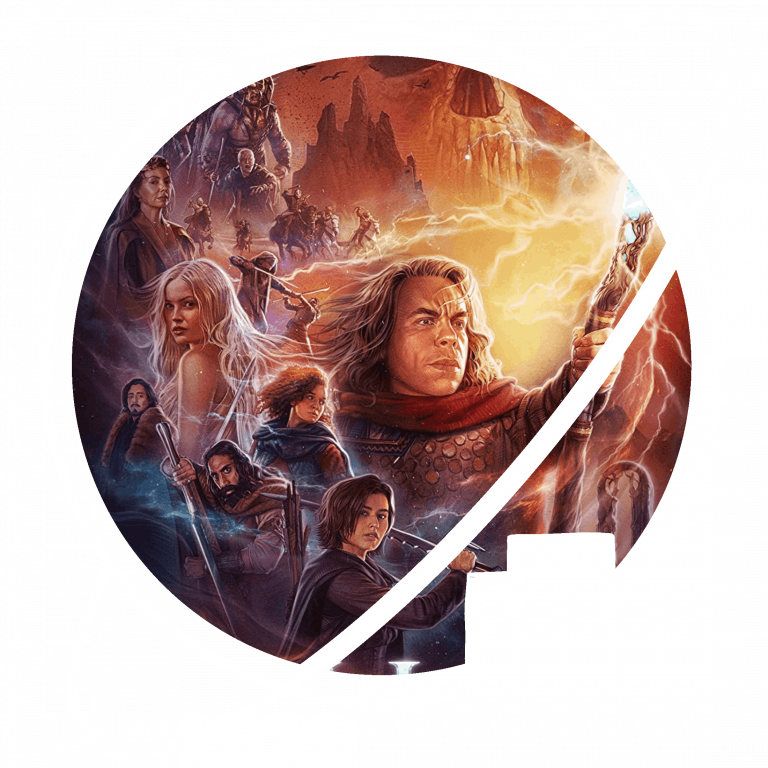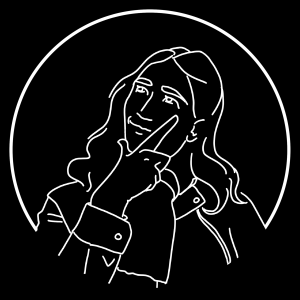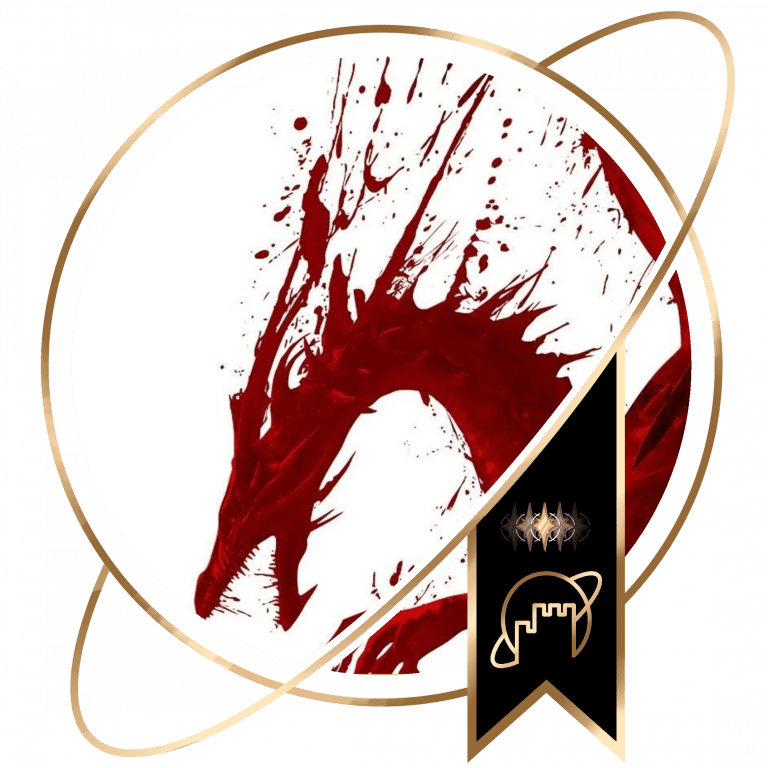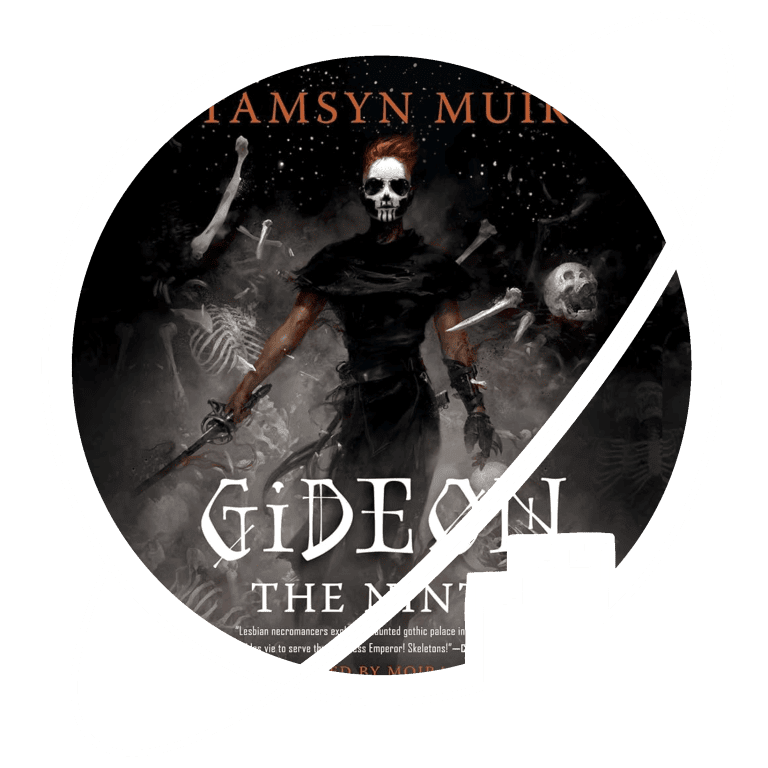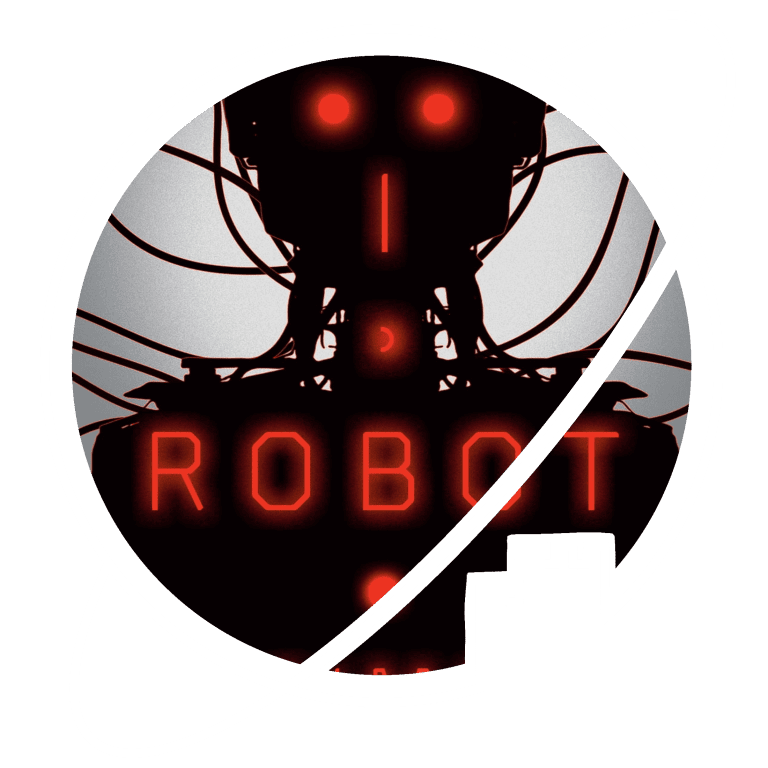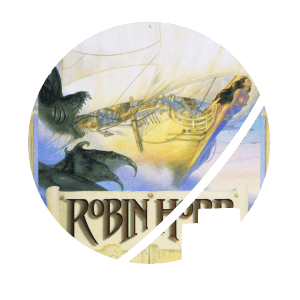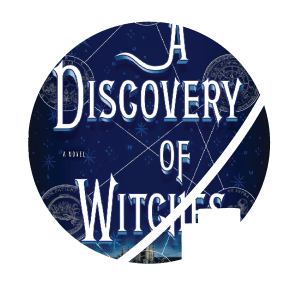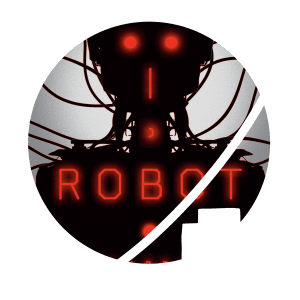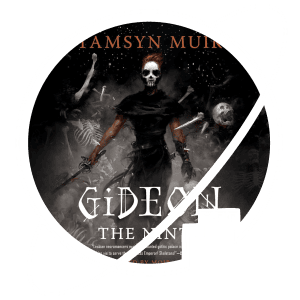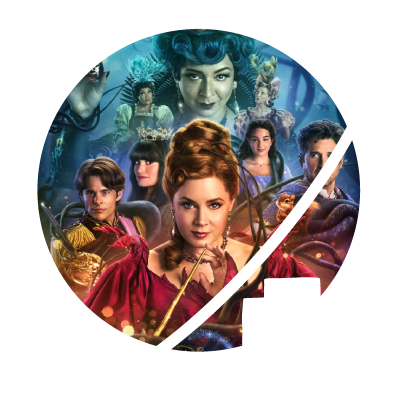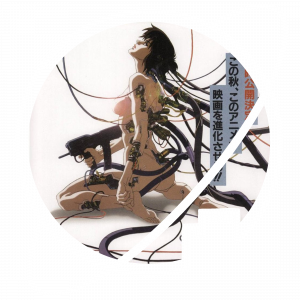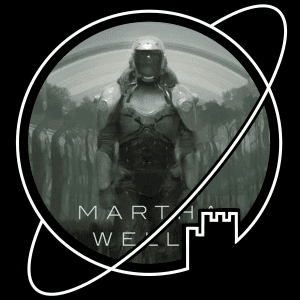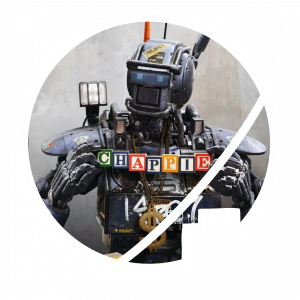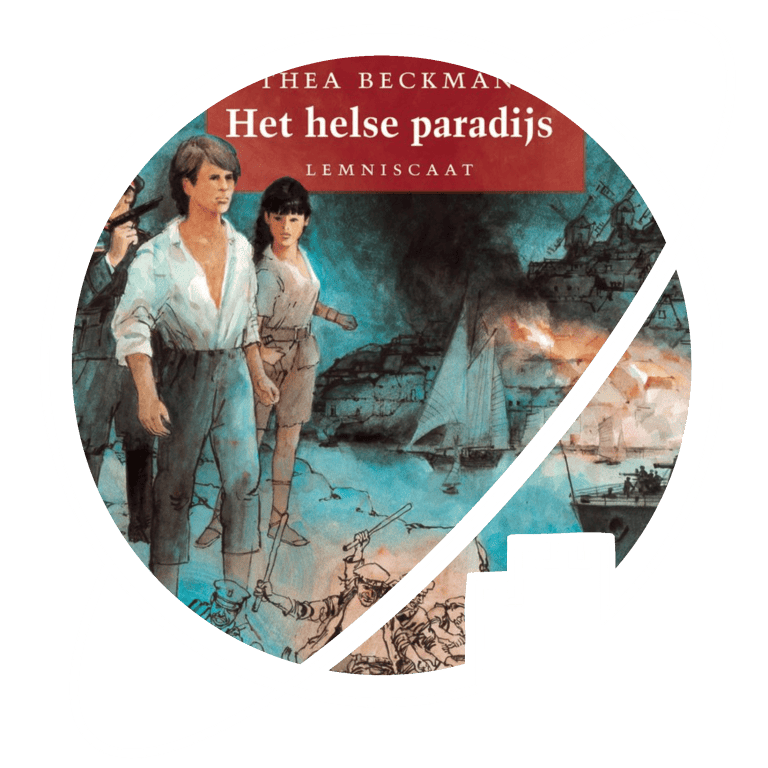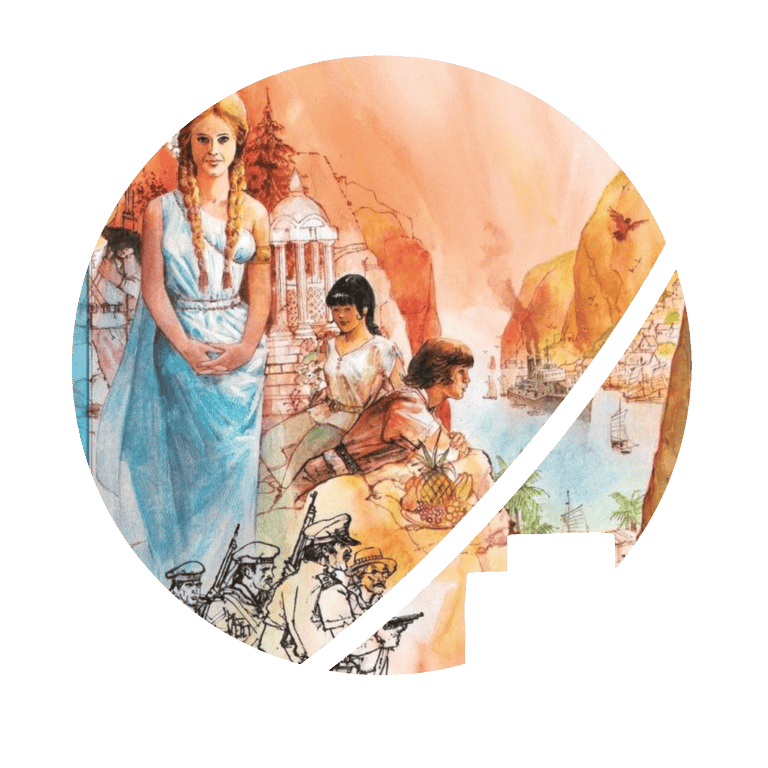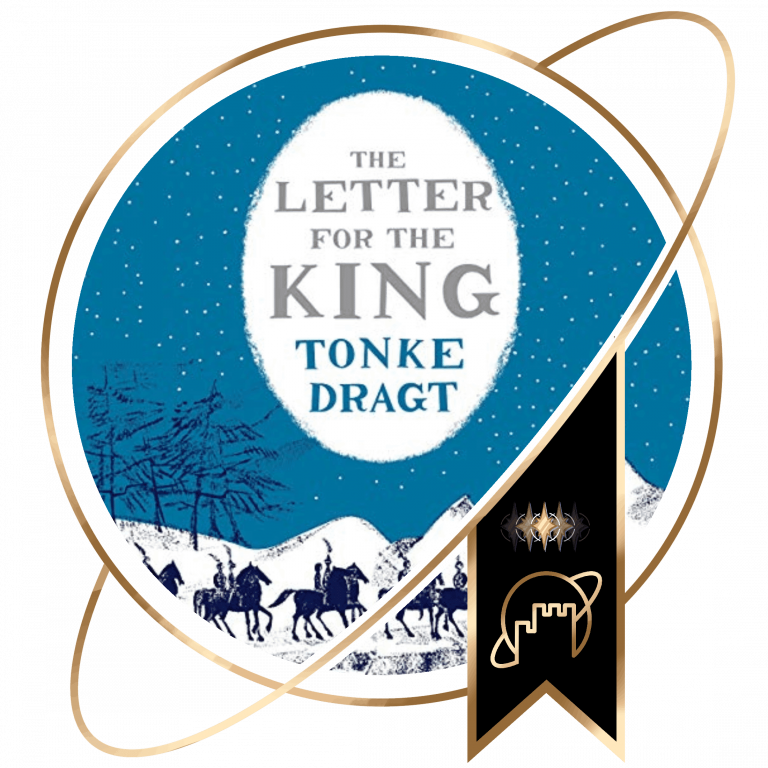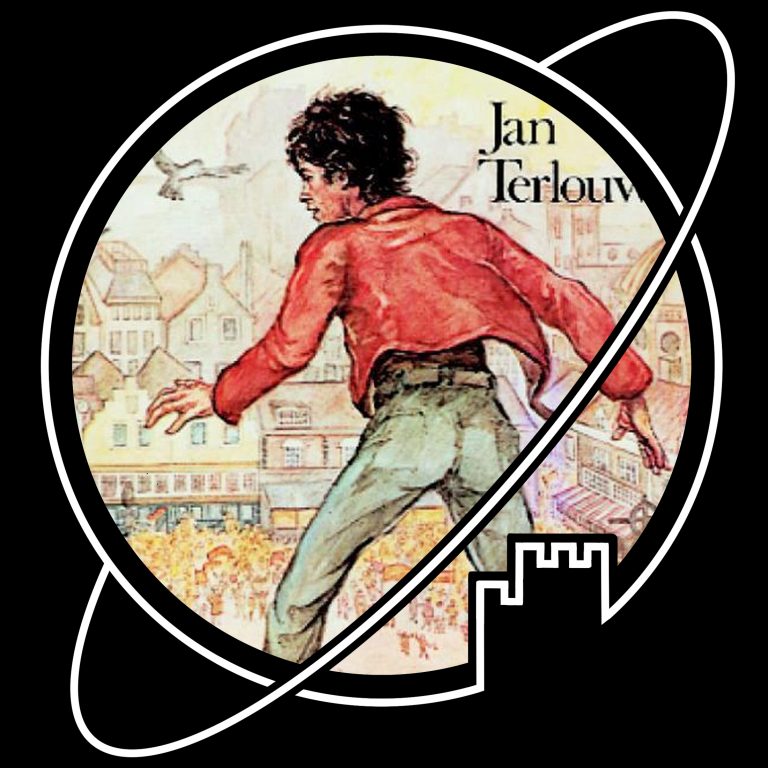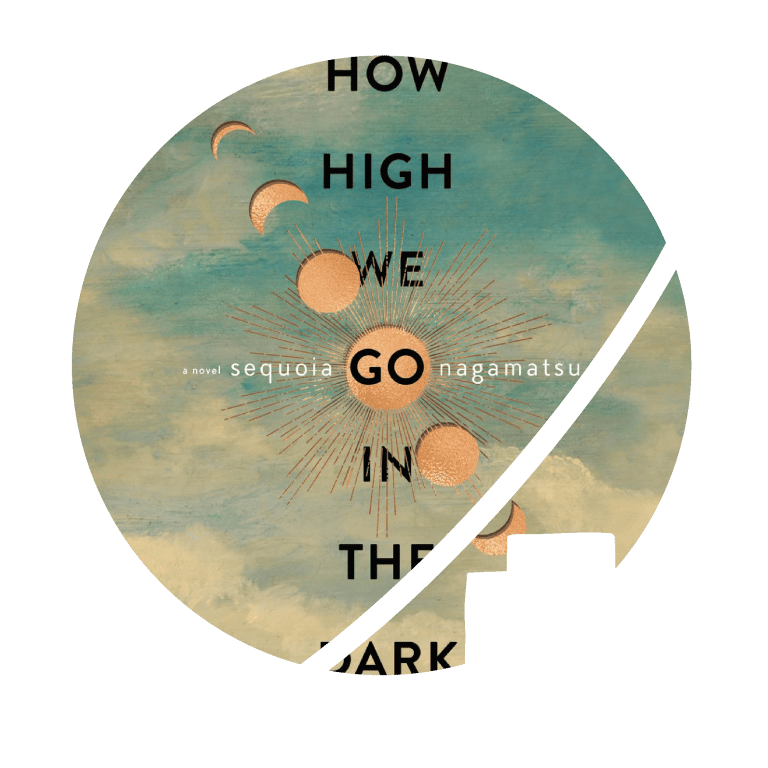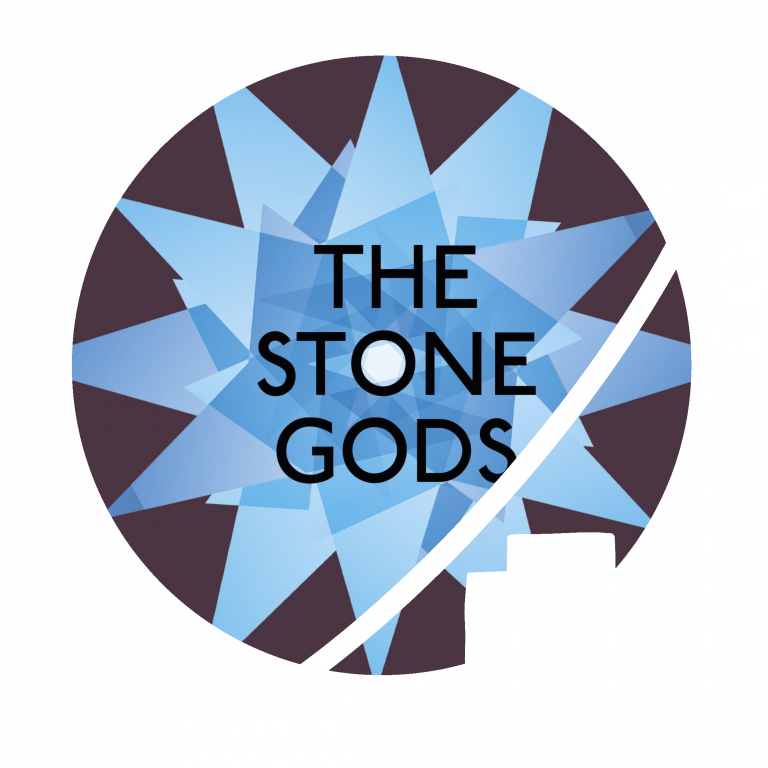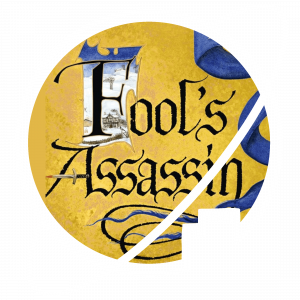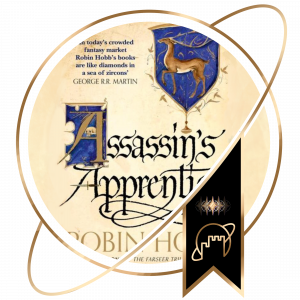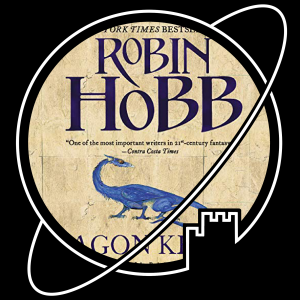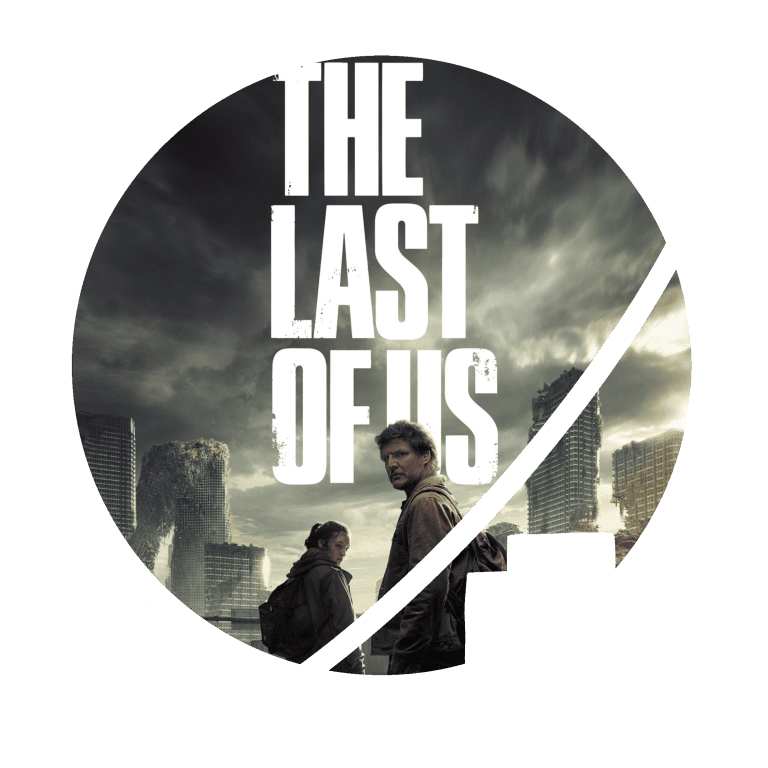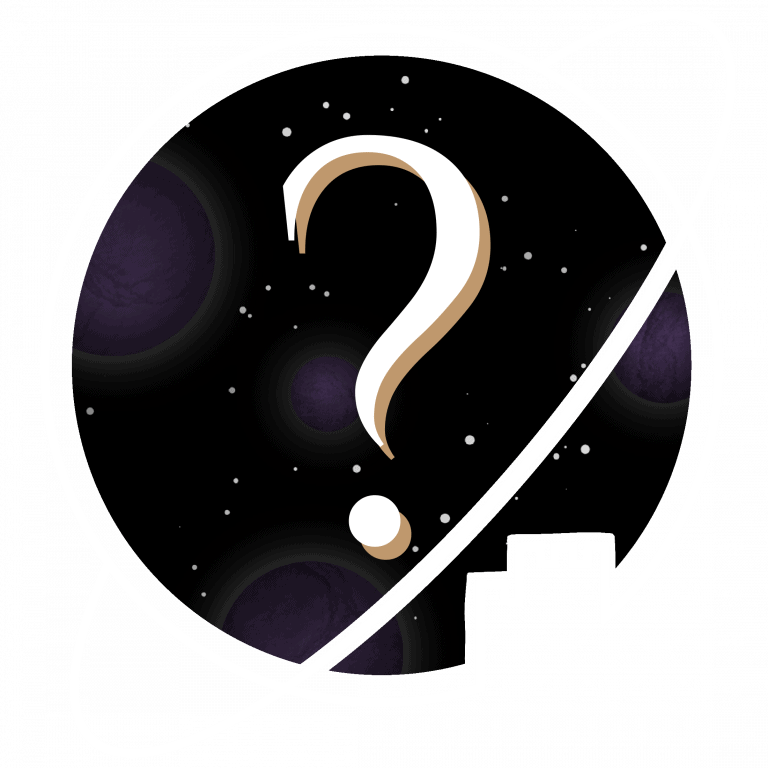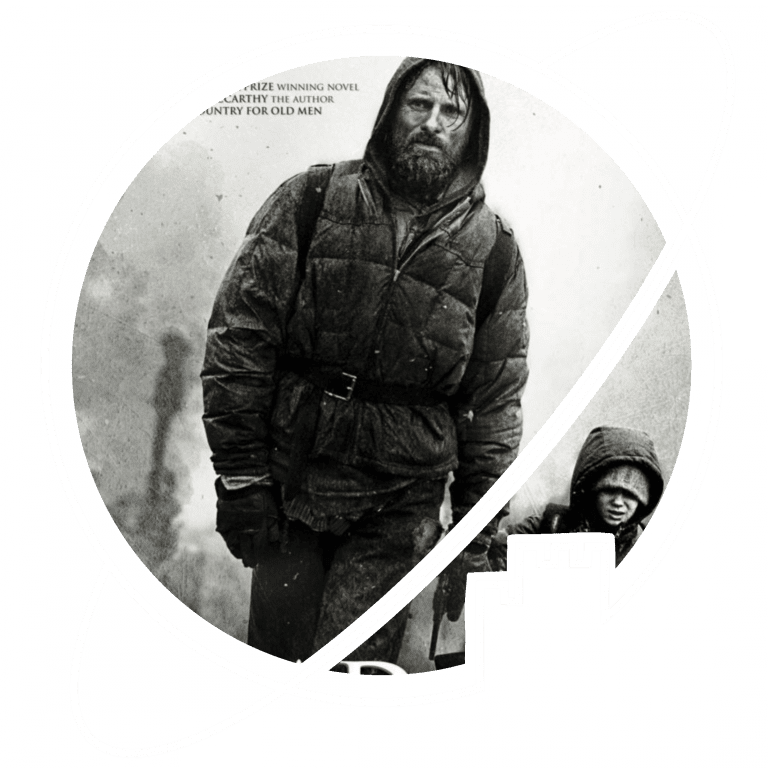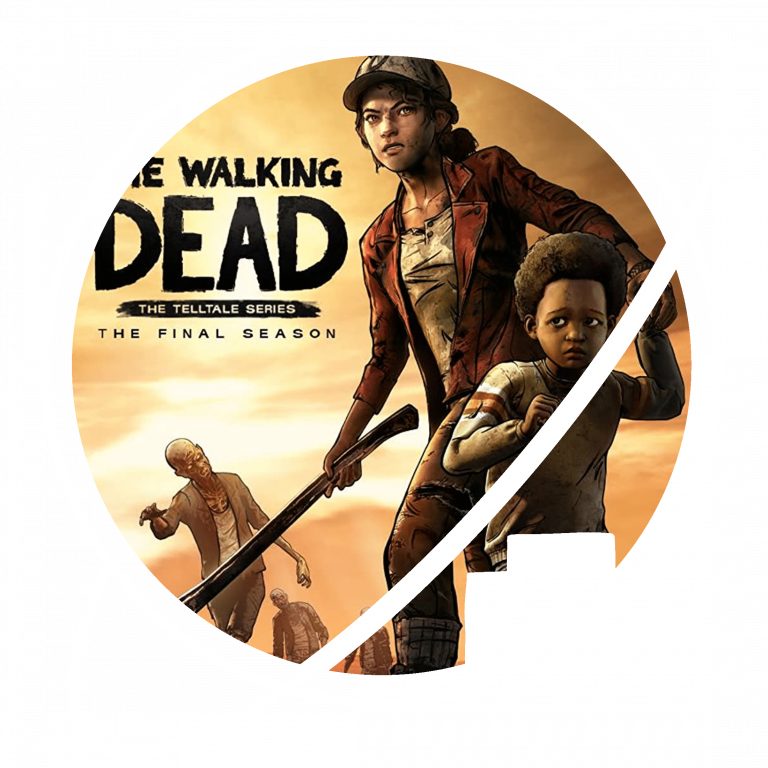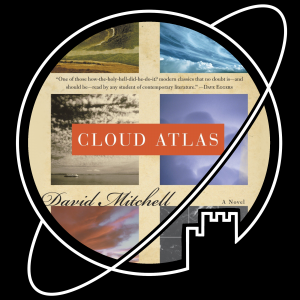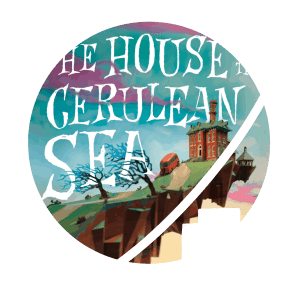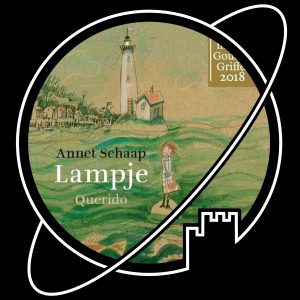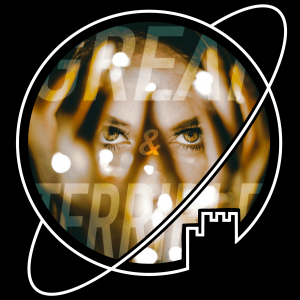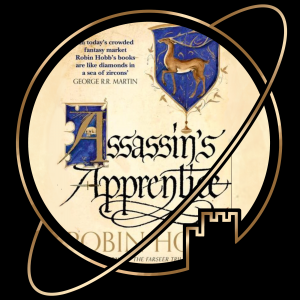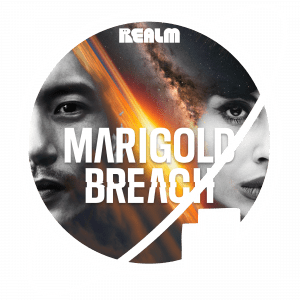A curated Collection of Fantasy and Science Fiction Media
Recent Updates
We survived another one! Another year done, with highs and lows for everyone.
Our curators look back at their 2023 in speculative fiction, by evaluating their resolutions for the year and highlighting their favourite media/reviews of the past twelve months.
How successful were you in fulfilling your 2023 resolutions? And, when it comes to speculative fiction, what were your favourites, disappointments and surprises this year?
2023 resolutions
I’ve been on a slow upward trajectory this year, and I’ve read more than I have in a while. And I actually managed to hold up my resolutions!
I read three novels in The Wheel of Time – and to be honest, that might have been three too many. It is not that bad, but it is just so… middle of the road. There is so much out there that I’d rather read! I guess you could say one of my resolutions for 2024 is that I will not be persuaded to spend more time on The Wheel of Time.
And I did actually paint a few miniatures this year! Not nearly as many as I used to, but I’m really glad that I climbed over the painting barrier in my head and I managed to work painting back into my routine. I’ve mostly been adding to my Rohan army, but I really need to start painting heroes for that Quest of the Ringbearer-campaign that is really going to start some time soon, I promise! I suppose the next challenge would be to actually paint more miniatures than I buy (or print….) next year.
I didn’t actually play as much tabletop roleplaying games as I intended, but we did finally finish Seed of Mars after 7 years and that is probably the most satisfying TTRPG-experience I have ever had, with all the storylines coming together and the excitement running really high! I’ve actually already been asked to re-start the whole campaign with a new group, so of course I agreed. I’ve actually really enjoyed upping my game with the visuals – redesigning the character sheets, drawing the objects and vehicles… though now I need to make sure that I don’t put the bar too high.
favourite
I’ve read a couple of books I really liked this year – such as the gripping dark He Who Drowned the World and the unexpected Odyssey of Metro 2033, but for my favourite book we’re going to have to go all the way back to Joe Abercrombie’s The Heroes. I really love his style, I really love his interesting narrative choices, I really love that it’s both a great standalone and a great tie in, and I really couldn’t find anything to criticise. I think it is a must read if you are even casually interested in the dark underbelly of traditional fantasy.
Biggest Surprise
I’ve come across a couple of surprises, too, this year: I didn’t expect to enjoy the Dungeons & Dragons movie nearly as much as I did, for example. But the one that stands out for me is Legends & Lattes, which I finished recently – reviews are coming shortly, but I’m hoping the other curators will hop on the bandwagon before I publish mine. I’ve been outspoken about disliking the fantasy-as-a-setting trend before, and the whole thing screamed ‘not for me’. But I saw it was on the Hugo shortlist, which surprised me a little, and once I realised it was only 8 hours long, I gave it a whirl. And it was actually really good! Unapologetic, fun, light, and short enough never to lose momentum. A real pity it didn’t actually take home the Hugo – I liked it a lot better than Nettle & Bone (review also upcoming), which won the award this year.
Biggest Disappointment
I’m probably not allowed to cite the Dutch general elections this November as my biggest disappointment this year (though some party platforms did read like a fantasy book…). I actually considered going for The Priory of the Orange Tree for my disappointment of the years, not because it was bad – it was actually still pretty good – but because for some reason I expected it to be exalted and, well, it wasn’t. That didn’t feel fair though, so I’m going to go with The Wheel of Time instead. That, too, wasn’t that bad, but it was just… uninteresting? So many people swear by it, but I really couldn’t get into it. Life is too short to read the Wheel of Time.
2023 resolutions
This year flew by for me. I don’t feel like I got a lot done, but that’s probably because I’ve started figure skating in winter. A lot. And then when the season ended and my rink closed, summer just felt like a big vacation, so I didn’t get around to doing all of the stuff I vowed to do. But I still managed to do okay at my resolutions!
I don’t remember exactly when I started the initial Farseer–trilogy, but I know it was a LONG time ago. I’ve been avoiding finishing the series because I really love it. For those who don’t know: this series consists of 16 (!) books. This year, I finally managed to read the first two books of the Fitz and the Fool–trilogy, the final trilogy of the series. Despite owning gorgeous hard cover versions of the last two books, I ended up listening to the audiobook for the final novel. I’m currently still listening to it!
My second resolution is a bit of a rough one. I barely drew anything this year, let alone fanart. I just haven’t felt very motivated to draw, I suppose. I intend to pick it back up next year, though!
On a more positive note, I’m happy to report that I’ve finally finished Assassin’s Creed: Odyssey! Or at least, I’ve finished the main quest. The spoiler I saw that made me vow to actually finish the game this year wasn’t actually part of the main quest, apparently? So I suppose there’s still a bunch of content still to see. However, I’m happy with the time I put into the game and I don’t intend to pick it up again anytime soon.
favourite
I would say my favourite thing I picked up this year is the latest season of Dropout’s Dimension 20: Burrow’s End. It was the perfect mix of funny, spooky and heartfelt. The campaign was mostly roleplay with little combat, which was perfect for me as I’m not a huge fan of combat in D&D live play shows. Also the show focuses on a family of stoats, which was cute as heck.
Biggest Surprise
I suppose my biggest surprise of this year was getting an advanced reader copy of a pretty serious sci-fi book; Han Song’s Hospital. I haven’t done much research yet into the world of ARC’s, and I’m quite content just uploading reviews of things way after their popularity has died down. Still, it was fun to be offered the opportunity to read a book before it comes out, especially because it’s the type of book I likely wouldn’t have picked up myself.
Biggest Disappointment
I’m not sure exactly why I had high hopes for A Discovery of Witches, but it was an absolute slog to get through and I’m glad it’s over. Genuinely I cannot believe how many people love this book.
2023 resolutions
My year turned out to be quite hectic so I definitely did not do as much reading as I’d hoped. However, looking at my resolutions from last year it doesn’t look too bad: I did manage to read Babel, and Jop and I also finished the final season of The Walking Dead. I’m still only halfway on the first of the miniatures that I wanted to paint though, so unless I have a very productive Christmas break, that will have to wait until next year!
favourite
I really enjoyed Babel, which I read at the beginning of the year, but if I’m honest with myself there was another book that I enjoyed even more. Although it isn’t speculative fiction I will still mention it here, because it is also by R. F. Kuang. I found myself jumping on the bandwagon of this year’s big literary sensation: Yellowface. If you’re looking for something that’s a little different and that has a fast-paced, darkly funny discussion of racism and the book industry, give it a go!
Biggest Surprise
Here, I have to say Willow. While I still would not describe this show as ‘good’, I look back on it with more fondness than I ever thought possible. I undeniably had a good time with it and if it hadn’t been cancelled, I would even be looking forward to the next season.
Biggest Disappointment
Looking back, I have to conclude that my year was pretty average. There weren’t any major disappointments, but also not that many things have really stayed with me. So I guess in a way that in itself is my biggest disappointment. I’m hoping that next year will feature some more highlights!
2023 resolutions
Oh yeah, those resolutions I made up last year. I certainly remember those…
But honestly, I didn’t do as bad as I thought. I did read I, Robot and I would have certainly played Dragon Age: Dreadwolf if the universe had blessed my existence with its release this year. For the success rate of my new resolutions it would probably be safe to not include a game that hasn’t got a confirmed release date? Still, I’ll put Dragon Age: Dreadwolf in my “to consume” resolutions till it’s released, cancelled or until any unhoped-for accident happens that will prevent me from putting together a list of resolutions.
My third resolution was to read Harrow the Ninth. This was an error (in my defence, the titles of these books are very much alike). I actually meant to read Gideon the Ninth. I am in possession of the book, but I have yet to read it. Most of my reading time this year went into rereading the Liveship Traders by Robin Hobb, a decision I don’t regret.
So, one out of three… Better luck next year?
favourite
My favourite of this year was in some sense also a big surprise (though perhaps not the biggest): Baldur’s Gate 3. Ironically, before its release I didn’t really expect to play it. I’ve tried to pick up Baldur’s Gate 2 multiple times in the past, but I never really liked it. As such, its successor wasn’t on my radar. Instead, I kept dreaming of the next Dragon Age.
However, I let myself be influenced by social media and requested Baldur’s Gate 3 for my birthday in early October. It was a month of self-rediscovery for me, with a decent amount of free time, and in retrospect the perfect moment to sink all my time into a new game. It was perfect! It’s been a while since I have played a good fantasy TTRPG and Baldur’s Gate 3 scratched an itch that desperately needed scratching. Also, I’ve always found that a process of self-reflection really benefits from intense escapism. My tiefling cleric of Mielikki and her ragtag band of adventurers were really great in that regard.
Biggest Surprise
I’d nominate I, Robot for the biggest surprise category this year. This is not a sign of distrust of Peter as my science fiction mentor, but rather a personal bias when it comes to science fiction media. on the whole. In general, I just don’t expect to like it as much as I love fantasy. I very much enjoyed I, Robot though!
Biggest Disappointment
There weren’t really any disappointments for me this year, I believe. At least not when it comes to speculative fiction. Except for the aforementioned complete lack of Dragon Age: Dreadwolf, of course… Somehow, I keep setting myself up for disappointment with that one. Year after year. Oh well…
That’s us for today, folks! Happy holidays!
Check out some of the reviews of related media here:
- Movie directed by Adam Shankman
- Starring Amy Adams, Patrick Dempsey, James Marsden, and Idina Menzel, Gabriella Baldacchino, Maya Rudolph
- Released 18 November 2022
- Runtime: 119 minutes
- Spin-off of Enchanted

I was looking forward to Disenchanted for years! When it finally released I couldn’t help but feel every part of the movie was strained. The music, although written by Alan Menken, sounded like a wet copy of the first movie. The storylines for all the main characters felt very forced and mainly written to give the Big Stars enough screentime. Overall, I was disenchanted by Disenchanted.

When it comes to Disney sequels, it’s usually safe to not expect a masterpiece. More often than not, they lack the quality and originality that made their predecessors shine. This is certainly true for Disenchanted, the sequel to Enchanted.
I always liked Enchanted. It has a fun and charming premise and **the amazing Amy Adams is perfect for the role of naive fairy tale princess thrown into the real world. She sold the premise.
In theory, the premise of Disenchanted – a princess wishing for some of the magic from her former life – could work too. And, with almost the whole cast reprising their former roles, it would seem that all the required puzzle pieces for success are still there. However, I found the whole movie to be quite forgettable…
I’m afraid that’s all I have. For someone who’s often able to recount most story beats and details from media she has consumed, this is quite telling though. From Disenchanted I remember practically nothing, except that Idina Menzel – whom I still love – at one point sings an awkward song centred around the words “love power”. So, if you enjoy Idina Menzel’s singing, this movie has at least one think to look forward to?
Tagged:
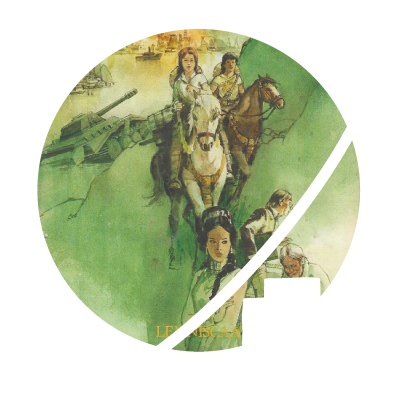

Listened to the audiobook with Emmelie Zipson again – well read!
Het Gulden Vlies van Thule does something interesting: it is almost as if Beckman ‘skipped’ a book in between Het Gulden Vlies and Het helse paradijs: when the story starts, our characters from previous books are in the past, and we’re a couple of years into the invasion and colonisation of Thule, and we follow the adventures of a girl emigrating from the Badener Empire to the ‘Annexed Territories’.
This means that again, the story is quite different from the previous books, which keeps the story fresh. There is more attention to the plight of the Badener citizens who, misinformed by their government and suffering from the Badener Empire’s poor resource management, want to escape poverty by taking a position in the colonies.
I won’t say that the first two books aren’t political, but Het Gulden Vlies van Thule is even less about the exploits of a few individuals, and even more about the struggle between two societies.
I’m always a little torn about Het Gulden Vlies van Thule. The first two books in the trilogy are a little brighter, a bit more optimistic. Het Gulden Vlies is perhaps more realistic, but as a result is also pretty grim. I won’t spoil the ending, but I’ve always felt like, in the end, no-one won and everyone was in the wrong. I guess that’s just war?
I think Het Gulden Vlies van Thule does a good job of presenting both sides of a conflict, painting a more balanced or neutral picture of the warring sides and allowing the reader to draw conclusions themselves.
In that sense, I think Het Gulden Vlies can be a great educational experience, a good introduction for children to talk about war, about right and wrong, and about peaceful resolution.
Having reread the trilogy, I felt like a fourth novel was missing, a story describing how the two societies grew towards a durable peace. Perhaps Beckman never got round to that, or perhaps she felt like it wouldn’t be a realistic outcome.
I’m still dreaming.
Tagged:
See also:
- Short Story written by Sylvain Neuvel
- Published 12 February 2019
- Standalone
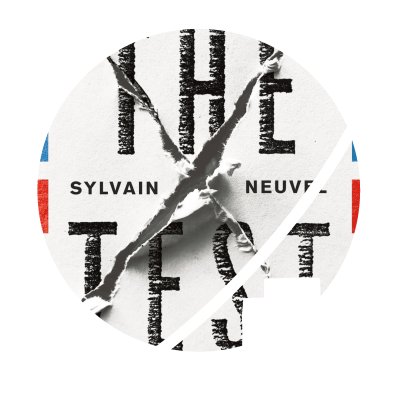

I’m a big fan of Sylvain Neuvel since I read the Themis Files, so when a short story from his pen appeared in my audiobook app, I immediately tapped.
I love The Test because it is a great example of a sci-fi short story in the tradition of the great masters such as Philip K. Dick and Isaac Asimov, placed into our modern time.
It takes an interesting science-fiction concept and inserts it into a short story with a great twist. The concept fits neatly into the short format and Neuvel makes his point without bloating the story. The bite-size nature of The Test means there is no need to stretch the suspense and the twist is delivered quickly and effectively, while leaving just enough room to explore its meaning. Neuvel does not need to explain everything and is comfortable leaving a lot tot the reader to imagine.
What is left is relatively minimal, but that does not mean that The Test is a light read. It delivers scathing societal commentary and raises thought-provoking philosophical questions. It is one of those stories that prove that good sci-fi is political – its near-future premise and reflection of current societal morals means it cannot be read without considering what implementing a concept similar to The Test would mean in our own reality.
The Test is a true conversation starter that constantly places you in the shoes of the main character and makes you consider tough moral questions – definitely worth spending a couple of hours on!
Tagged:
See also:
- Novel written by Robin Hobb
- Published 11 August 2015
- Part two of the Fitz and the Fool trilogy
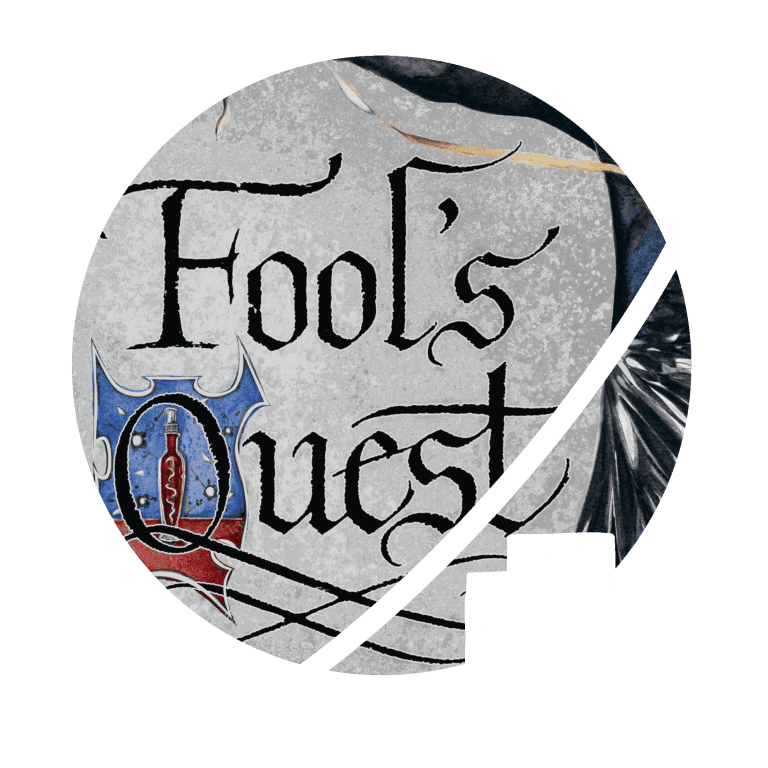

What can I say? If you’re this far into the series, why are you even reading reviews?
Needless to say, I enjoyed Fool’s Quest. Just like I enjoyed the other 7 novels following Fitz’s life. A word to the wise: Fitzchivalry is a little annoying in this one. But it’s nothing a seasoned Hobb fan won’t be able to handle.
This series is separated into three books mostly because it would be too hard to publish one 3000-page novel. This may well be true for Hobb’s other trilogies, though it’s been so long since I read those that I couldn’t say for certain. With this book, however, I really noticed it. The story just sort of ends, not because it makes sense narratively, but because it needed to end somewhere. I don’t know if that’s a bad thing, necessarily? It’s just kind of weird.
One thing I loved about this book is the exploration of gender and gender identity. Both the Fool/Amber and Spark/Ash seem to be gender fluid and though Fitz seems a little confused at first, he does seem to respect, if not quite understand it. Fitz gives me the vibe of someone who’s been raised in a quite conservative way, but eventually learns to be more open to people who are “different” from him. Like, he doesn’t quite get it, but he loves the Fool and wants him to be happy. Still, I’m currently in the third book, and find myself almost gritting my teeth every time someone mentions Fitz’s relationship with Amber/The Fool. I just know he’s going to be weird about it eventually. It’ll be a whole thing where he’s like “But I’m not gay!!!”. Though this genuinely might have already happened in an earlier book? Anyway, it’s interesting to see the topic of gender tackled in a book that’s not inherently about LGBTQIA+ people.
I do have one note that may be relevant to some readers: there’s a lot of mentions of sexual assault in this book. If that’s not your thing, you may want to avoid this series.
Tagged:
See also:
- TV show developed by Craig Mazin and Neil Druckmann for HBO Max
- Released 15 January 2023
- Starring Pedro Pascal and Bella Ramsey
- 1 Season of 9 Episodes, renewed for a second season
Global society collapsed after a fungus turning people into zombies spread like a wildfire. Joel is a world-weary smuggler used to a life out of sight of what remains of the authorities. Ellie, on the other hand, is a sassy teenager growing up in a dreary post-apocalyptic world, whose importance neither she nor Joel can grasp. When Joel is tasked to take Ellie on a dangerous trip across country, he is (understandably) less than thrilled.

I’d heard a lot about the game The Last of Us but have never had a PlayStation to play it on. So no. I don’t think any of us have played the game.
I actually ended up watching this show twice. I had already watched the first episode when we decided it would be our next show to watch together. I decided to continue watching the show even though I knew I would be seeing it again. The first episode just really gripped me, and I didn’t want to have to wait.
I really loved The Last of Us. I liked the way it was a zombie story based on a video game, but there’s barely any zombie fighting in the show. We don’t get scenes of Joel gunning down hordes of zombies unless it’s absolutely necessary for the plot. We’re all scared of the infected, but they’re mostly background noise. The Last of Us is not unique in this, though. I think most zombie stories use the setting as a way of exploring how humanity behaves when all the rules of society have gone out the window. It works really well.
Much like my fellow curators, I loved the casting of this show. Pedro Pascal and Bella Ramsey do a phenomenal job as Joel and Ellie. I was particularly charmed by Bella Ramsey.
While I did love the show, I’m a little conflicted on the topic of adapting a video game (or any medium) for television or film. I think as a society we have this idea that TV and Film are a superior form of media, and the highest honour a book or comic, or in this case, a video game can reach is being adapted for the screen. I’d like to challenge that assumption and say that I think some stories are best told in other ways. I think video games are a phenomenal medium because they put the player at the centre of the action. If the main character in a movie does bad things, you get to judge them from the outside. When the main character in a video game does bad things, that’s the Player doing those things. It’s you. I’d argue that the psychological experience is very different.
Another game that’s being adapted for the small screen is 2K’s Bioshock. While I’m very excited about it because I love Bioshock, I also know that the central theme of the game is choice. The story works so well in a game, because as the player you are constantly the one making those choices. The Last of Us explores the question of “how much violence can we use to protect the ones we love?” I’d argue that this question is explored better in a medium where we ourselves commit that violence than in one where we merely observe it from the outside.

Before I dive in, a quick disclaimer: I never played the The Last of Us-video game, so I can’t comment on the series’ accuracy to the source material. I did, however, notice a number of very video gamey moments in the cinematography of the series, be they the frequent over-the-shoulder camera angles, the awkward split ups between the characters, the boss-zombies, or even the moments when a companion disappears just as you round a corner. And I love that! It’s (mostly) pretty subtle, but if you play(ed) games a lot it’s sure trigger that ‘I see what you did there’-feeling.
So, aside from faithfully bringing a video game to the small screen, is The Last of Us any good? The short answer is ‘yes’. The long answer is ‘varying degrees of yes’.
Interesting about The Last of Us is that many of its episodes can be viewed, individually or in pairs, as more or less separate, self-contained stories. Of course, some of those stories are better than others – but with The Last of Us, that is a matter of variation within the spectrum of ‘great’.
Many of the story lines are very heavily character-driven, which I though was surprising for a series based on a video game, a medium for storytelling that is, after all, not know for its literary inclination. But the writers of The Last of Us managed to escape the trap where the series is a series of action sequences tied together by character cutscenes. Rather, the action sequences ty together the character scenes, and each of the action sequences plays up the character element.
It’s not just the writing either. The production value is great. The performances by Bella Ramsey and Pedro Pascal are consistently phenomenal. Overall, there is very little to dislike about The Last of Us.
Really, my only disappointment was with the plotlines chosen for the final episodes (which, I suppose, were predetermined by the video game). There is a pervasive trope in post-apocalyptic (zombie) fiction that in the end, the biggest danger are always other people. As the story progresses, the initial premise – the world being overrun by mindless living dead – becomes background static while a power struggle between survivors takes front stage. The Walking Dead would be a great example.
The Last of Us is – in my eyes, unfortunately – no different. After the first couple of episodes, the undead are relegated to a plot tool with basically only one purpose: to infect a character during a momentary lapse of vigilance and create the moral conundrum for the other characters whether or not to shoot them on the spot before they turn. Don’t get me wrong, this is a trope for a reason and The Last of Us does these moments very well. But I am always a little disappointed that the setting – the zombie apocalypse – stops being integral to the plot halfway through. I don’t want to spoil you, but there are some other tropes of the setting that The Last of Us plays straight relatively heavy handed in the last few episodes. And though they aren’t poorly executed, I felt like the great chemistry between Ramsey and Pascal is perhaps wasted on what could have been a more thoughtful spin on the zombie apocalypse genre. Again, The Last of Us is great and you should definitely go watch it. But to me, these kinds of choices make the difference between an exceptional series and ‘just’ a great one.

If I’m honest, I have to admit that I was in a pretty terrible mood when we started watching the first episode of The Last of Us, which made me find fault with every single detail of the episode despite it coming highly recommended (sorry, Lotte!). Luckily no one took my grumbling very seriously, and from the second episode onwards my mood improved, as well as my opinion of the show.
It feels almost redundant to point out that Bella Ramsey’s acting is the absolute highlight of the series. The nuance and subtlety in their acting is incredible to watch, and the character of Ellie herself is simply hilarious.
While the post-apocalyptic setting and the main plotline are perhaps not the most original, for me the show still managed to surprise. Quite a few times I thought I knew exactly what was going to happen, but then they completely threw me for a loop and went in a very different direction. I don’t know if this is the result of it being adapted from a video game, but I really enjoyed this aspect. Because of these moments I was less bothered by the times when they did follow the well-known tropes that come with the genre.
I have never played the game myself so I don’t know how it holds up if you have already played it before watching, but I can at least say that not having played it does not detract anything from the viewing experience.
All in all I thoroughly enjoyed it, and am definitely looking forward to the next season.

So, The Last of Us… I didn’t play the games (playing an action-adventure game in a zombie post-apocalyptic setting would probably be the end of me), but was familiar with the general discourse around it. Many people praise the story. Additionally, it was already known to me how brilliant of an actor Bella Ramsey is, after seeing them in action in The Worst Witch, Game of Thrones, Hilda and the medieval comedy Catherine Called Birdy. They have all that range when it comes to acting… Also, Pedro Pascal always seemed like a decent fellow to me, so my expectations for this series were quite high.
It would be easy for me to try and compare The Last of Us with The Walking Dead, a series that is close to my heart and also revolves around a post-apocalyptic setting with zombies. However, I also believe that wouldn’t be really productive because their way of storytelling is very different. The Last of Us is, at the end of the day, a fairly intimate story, focussing on two protagonists – as expected, masterfully portrayed by Bella and Pedro – and their dynamics with each other and the setting. Some episodes introduce us – in a rather comprehensive way – to the perspective of other characters, often resulting in artistic little side plots that us a deeper understanding of the world Joel and Ellie’s story takes place in.
Aesthetically pleasing. These are the words I would use to describe the greatest strength of The Last of Us (disregarding the high quality of the acting for a moment). From action scenes to slow shots of people walking through desolate landscapes, I enjoyed watching it all. Arguably, I would say the only thing I thought displeasing to look at involved a French kissing zombie. Also, fast zombies give me the creeps. They shouldn’t be running. Ever.
As I said before, I don’t think it’s fair to compare The Last of Us with The Walking Dead. However, the fact that I’ve watched The Walking Dead did have an influence on my enjoyment of The Last of Us. Many of the genre’s tropes and general themes were familiar to me. And although they were well executed in The Last of Us, they didn’t evoke as strong emotions as they would have done some 11 years ago, Overall, however, I think The Last of Us very much succeeds in provoking the necessary questions. What is the meaning of humanity? And what is its worth?
Definitely worth the watch.
Tagged:
See also:
© 2023 – Escape Velocity – A Curated Collection of Fantasy and Science Fiction Media
Privacy Overview
| Cookie | Duration | Description |
|---|---|---|
| cookielawinfo-checkbox-analytics | 11 months | This cookie is set by GDPR Cookie Consent plugin. The cookie is used to store the user consent for the cookies in the category "Analytics". |
| cookielawinfo-checkbox-functional | 11 months | The cookie is set by GDPR cookie consent to record the user consent for the cookies in the category "Functional". |
| cookielawinfo-checkbox-necessary | 11 months | This cookie is set by GDPR Cookie Consent plugin. The cookies is used to store the user consent for the cookies in the category "Necessary". |
| cookielawinfo-checkbox-others | 11 months | This cookie is set by GDPR Cookie Consent plugin. The cookie is used to store the user consent for the cookies in the category "Other. |
| cookielawinfo-checkbox-performance | 11 months | This cookie is set by GDPR Cookie Consent plugin. The cookie is used to store the user consent for the cookies in the category "Performance". |
| viewed_cookie_policy | 11 months | The cookie is set by the GDPR Cookie Consent plugin and is used to store whether or not user has consented to the use of cookies. It does not store any personal data. |

